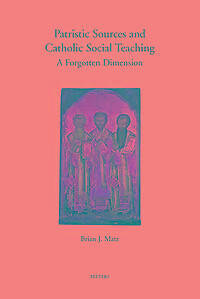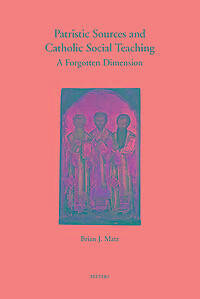
Bedankt voor het vertrouwen het afgelopen jaar! Om jou te bedanken bieden we GRATIS verzending (in België) aan op alles gedurende de hele maand januari.
- Afhalen na 1 uur in een winkel met voorraad
- In januari gratis thuislevering in België
- Ruim aanbod met 7 miljoen producten
Bedankt voor het vertrouwen het afgelopen jaar! Om jou te bedanken bieden we GRATIS verzending (in België) aan op alles gedurende de hele maand januari.
- Afhalen na 1 uur in een winkel met voorraad
- In januari gratis thuislevering in België
- Ruim aanbod met 7 miljoen producten
Zoeken
Omschrijving
The fact that over one hundred patristic sources may be found in the documents of Catholic social teaching (CST) would suggest that patristic sources have not been "forgotten" as the title to this book suggests. Yet, this study of every patristic source citation in twenty-one CST documents since the late nineteenth century suggests that just such a conclusion should be drawn. The CST documents in this study largely ignored the historical and literary contexts of the patristic sources, and this had the concomitant effect of limiting appropriation of the fullness of their arguments. In addition, most of the patristic citations do not reflect the socio-ethical concerns of the patristic authors themselves. Even when the patristic citations supported related, theological themes, usually they were relegated to footnotes. This is not a study of themes or of theologies in the CST documents, nor is it a study of the cultural and historical forces at work in the arguments made by those who drafted them. Rather, it is a study of the rhetorical, theological and/or pastoral function of each patristic source citation in the CST documents. In this respect, each CST document stands on its own as a rhetorical tour de force. For that reason, the study concludes with a vision for the "fair use" of patristic sources in future CST documents.
Specificaties

Alleen bij Standaard Boekhandel
+ 167 punten op je klantenkaart van Standaard Boekhandel
Beoordelingen
We publiceren alleen reviews die voldoen aan de voorwaarden voor reviews. Bekijk onze voorwaarden voor reviews.









